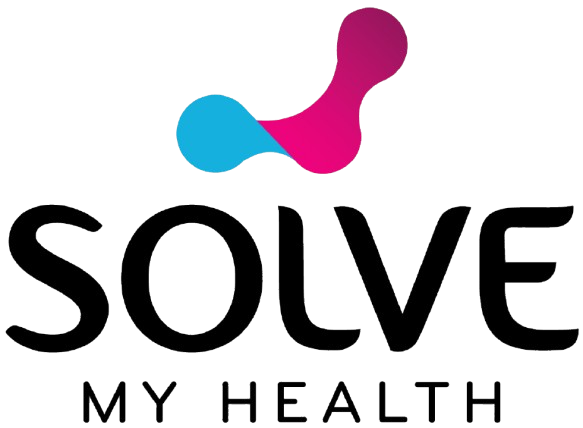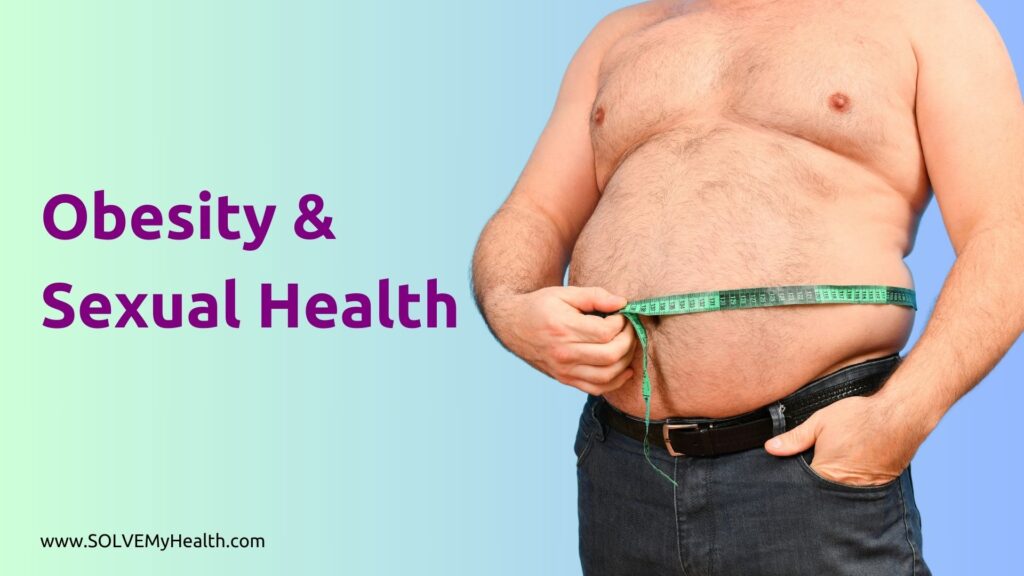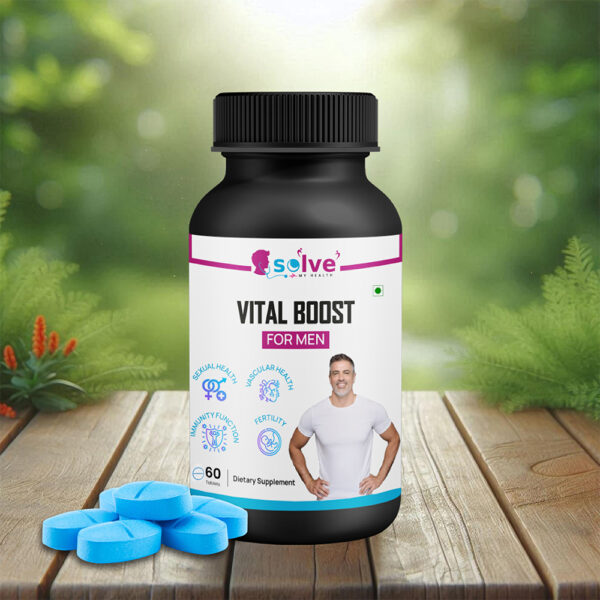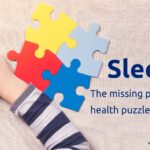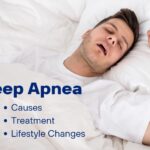Obesity has become a significant health challenge worldwide, including in India, where nearly 40% of the urban population is overweight or obese. This rise in obesity rates is linked to sedentary lifestyles – poor dietary choices, increased consumption of processed foods and lack of any physical activity. While the general public is well aware of the health risks associated with obesity, such as heart disease and diabetes, fewer people understand its impact on sexual health, particularly the increased risk of erectile dysfunction (ED). ED affects a man’s ability to achieve or maintain an erection, and its connection to obesity is more than just a consequence of ageing.
Excess weight directly affects blood flow, hormone levels, and overall sexual performance. Studies suggest that men with obesity are 40-90% more likely to experience erectile dysfunction compared to those with a healthy weight. This problem stems from the way excess weight disrupts the body’s natural processes, from reduced testosterone levels to poor cardiovascular health, all of which contribute to erection issues.
Understanding Erectile Dysfunction (ED)
Erectile dysfunction (ED) is a condition where a man has difficulty achieving or maintaining an erection sufficient for sexual activity. It is a common problem, affecting many men at some point in their lives, with prevalence increasing with age. In India, studies indicate that nearly 30 million men are affected by ED, with factors such as lifestyle, diet, and health conditions contributing to this growing issue. Understanding the causes of ED is essential to address and manage this condition effectively.
The causes of erectile dysfunction can be – physical, psychological or a combination of both factors. Physical causes often include underlying health conditions such as diabetes, high blood pressure, heart disease, and obesity, all of which can impair blood flow and hormone levels. Psychological factors, on the other hand, include stress, anxiety, depression, and relationship issues. These factors can lead to a cycle of anxiety and avoidance, further complicating the issue. Men experiencing ED may find it challenging to talk about their problems, leading to feelings of shame and isolation.
ED is not just a problem for older men; younger men are increasingly reporting issues with erections. This rise is particularly concerning in urban areas of India, where lifestyle changes and increasing stress levels may play a role.
Also Read: How does an erection occur?
How Obesity Impacts Sexual Health
One of the main ways obesity affects sexual function is through its influence on blood circulation. Excess body fat can lead to the narrowing of blood vessels and poor blood flow, which are essential for achieving and maintaining an erection. A study published in the Indian Journal of Urology found that men with obesity are at a higher risk of developing erectile dysfunction, with a prevalence of around 35% among obese men compared to 20% in those with a healthy weight. This reduced blood flow can lead to difficulties during sexual arousal and contribute to feelings of frustration and anxiety.
Another critical factor is the hormonal imbalance that often accompanies obesity. Increased body fat can lead to elevated estrogen levels (female sex hormone) and reduced testosterone (male sex hormone) levels in men. Testosterone is crucial for libido and sexual performance, and lower levels can result in decreased sexual desire and difficulties in achieving an erection. In addition, obesity is linked to insulin resistance, where the body’s cells become less responsive to insulin, leading to higher blood sugar levels. This condition is associated with a higher risk of diabetes, which can further impair erectile function.
In India, where changing lifestyles and dietary habits have led to rising obesity rates, such hormonal and metabolic changes are becoming increasingly common leading to higher instances of male impotence. Chronic inflammation is also a significant consequence of obesity, impacting sexual health. Excess fat tissue can release inflammatory markers that damage blood vessels and hinder blood flow, worsening the risk of erectile dysfunction.
The psychological effects of obesity can further complicate sexual health, as men with excess weight may struggle with low self-esteem, body image issues, and increased anxiety. Studies have shown that psychological factors play a significant role in erectile dysfunction, and when combined with physical issues like insulin resistance and inflammation, they create a cycle that can be hard to break. Addressing both the physical and psychological aspects of obesity is essential for improving sexual health and overall well-being.
The Science Behind Obesity and Erectile Dysfunction
The relationship between obesity and erectile dysfunction (ED) can be explained through several physiological processes. One key factor is the role of nitric oxide (NO) – a molecule that helps relax blood vessels and increase blood flow to the penis during sexual arousal. In obese individuals, the body often produces less nitric oxide due to impaired endothelial function. The endothelium is the inner lining of blood vessels, and when it is damaged, it cannot efficiently release nitric oxide. As a result, blood flow is reduced, making it more difficult to achieve and maintain an erection.
Also Read: Testosterone & its role in sexual health
Another important aspect is the testosterone levels. Fat tissue converts testosterone into estrogen (a process called aromatization), leading to lower levels of testosterone in the body. Since testosterone is essential for sexual desire, libido and erectile function, lower levels can significantly impair a man’s ability to perform sexually.
Finally, obesity is often associated with metabolic syndrome, a cluster of conditions that includes high blood pressure, high blood sugar, and abnormal cholesterol levels. Metabolic syndrome contributes to the development of cardiovascular diseases, which can further impede blood flow and lead to erectile dysfunction. The inflammation that often accompanies obesity can also damage blood vessels and reduce their ability to expand during arousal.
How We Can Help Improve Sexual Health and Overall Well-Being
Lifestyle Management Program
Addressing the issues related to obesity and erectile dysfunction requires a holistic approach that combines lifestyle changes with the right support. Our Lifestyle Management Program is designed to help individuals adopt healthier habits that can positively impact their overall health, including sexual health. This program emphasises practical strategies for improving diet, increasing physical activity, and managing stress. By focusing on these areas, participants can work towards achieving a healthier weight, which can significantly reduce the risk of erectile dysfunction and improve sexual performance.
The program includes personalised nutrition plans that is sustainable, considering your eating habits and cultural preferences in diet. The plan is crafted to improve insulin sensitivity, lower inflammation, and balance the hormone levels. An ideal diet plan is the one that allows you to enjoy your life and day to day activities and not be yet another stressor in our day to day life.
Physical activity is another critical component of our program. However, exercises too need to be customised to your medical and physical conditions and ailments. Our program involves a customised approach on exercises, for each client based on their body, history of injury, physical conditions etc. These home based exercises would require 20 – 30 mins of your time, for 5 days in a week.
Apart from a customised diet plan and exercise videos, we also give necessary support and handholding through routine check-in, calls and chat support. This allows you to ease into a healthy lifestyle without much difficulty.
SOLVE VitalBoost for Men
In addition to lifestyle changes, our SOLVE VitalBoost for Men supplement is designed to support those looking to enhance their sexual health. This supplement is formulated with clinically researched ingredients, including L-Citrulline, Zinc, and Coenzyme Q10. L-Citrulline helps increase nitric oxide production, promoting better blood flow, while Zinc plays a vital role in testosterone production, which is essential for libido and sexual function. Coenzyme Q10 is known for its antioxidant properties and supports overall energy levels, making it easier to maintain an active lifestyle.
VitalBoost for Men
SOLVE VitalBoost for Men is specifically designed to address the unique nutritional needs of men, supporting sexual health, while also improving cardiovascular health. Our expertly crafted formula combines: Essential vitamins and minerals for optimal nutrition and wellbeing Clinically researched ingredients like L-Citrulline, Zinc, and Coenzyme Q10 for enhanced energy, cardiovascular health, and vitality Clinically proven ingredients like Zinc, Magnesium & Selenium to improve testosterone production Antioxidants to reduce oxidative stress and reduce DNA fragmentation
Folic acid, yet another ingredient in our formulation improves the sperm motility and over all health. The anti-oxidants such as CoQ10, Vit-C and Vit-E reduces the oxidative stress and DNA fragmentation, and also improves the sperm quality and over all sexual health.
VitalBoost is manufactured with strict quality controls to ensure that each ingredient meets high standards for safety and efficacy. We prioritise sourcing high-quality, clinically tested ingredients to guarantee that our customers receive the best possible product. While VitalBoost is not a cure for erectile dysfunction, it can complement the benefits of lifestyle changes by providing essential nutrients that support sexual health and overall vitality.
Through our combined approach of the Lifestyle Management Program and SOLVE VitalBoost, we empower individuals to make lasting changes that enhance their quality of life and improve their sexual health. By focusing on both physical and nutritional aspects, men can work towards achieving better sexual health, improved confidence, and overall well-being.
